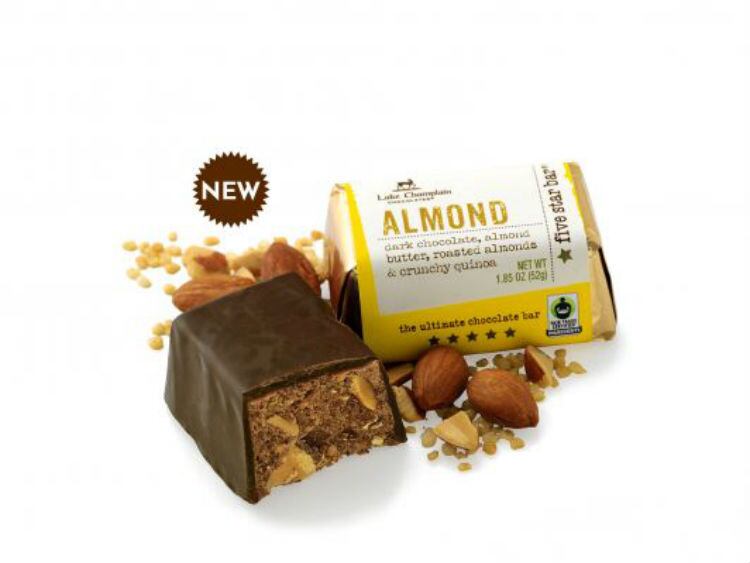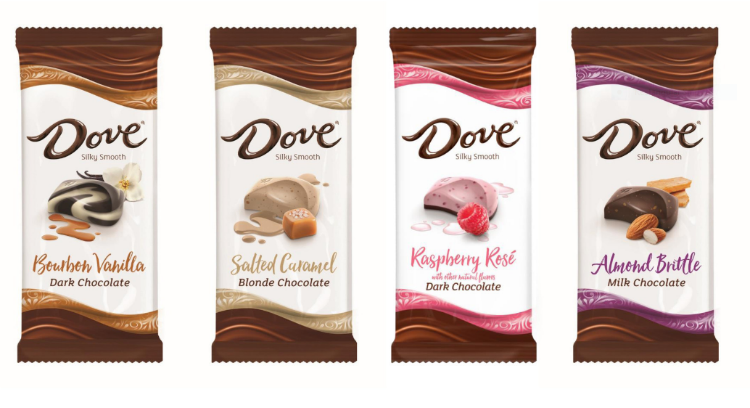We spoke with two of the board’s key team members at the International Food and Technologists’ recent annual expo in New Orleans to understand the trajectory of almonds in the public sphere – especially regarding the industry’s approach to responsibly farming the notoriously high-water ingredient.
In January, ABC announced Almond Orchard 2025, a four-pronged sustainability initiative that focuses on reducing water usage, reaching zero waste, dealing with pests and improving air quality for local residents. Since the 1990s, California’s almond industry has reduced water consumption for one pound of almonds by one-third, and the board hopes to cut another 20% by 2025.
“We really know consumers continue to be very interested about where their food comes from and how it’s grown, and responsible use of resources,” Emily Fleischmann, VP of global marketing at ABC, told us. “We realize that the industry has been doing a tremendous job for the past 50 or 40 years of responsibly using resources – but we haven’t been that public about it. Now is really the time to do that.”
Founded in 1950 as a grower-enacted Federal Marketing Order under supervision of the US Department of Agriculture (USDA), the board represents 6,800 farmers and processors in California. Most of them, according to Fleischmann, are family farms under 100 acres.
“Almonds really have been on such an interesting journey, especially from a marketing standpoint,” she said. “Back in the 90s and even prior to that, almonds were thought of as a very high-fat food, so they were classed in with everything you think of as high-fat: potato chips and junk food.”
ABC launched its research arm in 1973, adding pollination and honey bees as an essential topic three years later. It wasn’t until the late ‘90s and early 2000s that nutrition research ‘started supporting heart-healthy fats,’ followed by the US Food and Drug Administration’s 2003 decision deeming all nuts to be heart-healthy.
“That really started us on a journey of almonds being considered heart-healthy, and overall just one of the healthiest nuts. It moved on from there to just be thought of from its versatility in so many products: in milks, butters…in inclusions in bars, chocolate obviously. It feels like there’s no end to where we can take almonds,” added Fleischmann.
From snack bars to nut butters
Nuts are generally revered from a nutritional perspective as an easy, snack-able source of ‘good’ fats, protein and vitamins like iron and magnesium. But almonds lead the pack, according to Harbinder Maan, associate director of trade marketing and stewardship at the Almond Board of California.

“Almonds are the number-one nut in new product introductions and have been for the last 12 years,” she told us at IFT, referring to data from consumer research firm Innova Market Insights. “When we look a little bit deeper [to] where we see those introductions, we’re now seeing a real growth in things like snacking, bakery and bars.”
Almonds have long found a home in chocolate, she added.
The three fastest-growing categories for almonds are almond butters, ice cream and dairy alternatives – including yogurts, cheeses, spreads, and of course milks.
“More options [are] being paired with more things than we’ve seen before,” continued Maan, a characteristic she attributed to almonds’ versatility.
“They make a great base – a very familiar base. So if you’re trying to do something new and innovative, almonds really give you a platform to do that, plus they have the nutrient profile that people are looking for. They are gluten-free: they are free from a lot of things. Depending on the kinds of ingredients or categories that you’re trying to drive new products into, almonds can really fit a lot of different areas.”
They are also available in more forms than any other tree nut: whole, sliced, diced, ground. Almond flour, for instance, has expanded into new territory like smoothies through a defatting process, which provides a “higher protein product by removing the fat,” said Maan.
In addition to being plant-based, the popular nut – nearly half of new products in North America that claim nuts contain almonds – packs 6g of protein, 4g of fiber and 13g of unsaturated fats.
“Almonds are the number-one nut in cereal product introductions, so you start off with breakfast. They’re number-one in bars, kind of your mid-morning, then get more and more indulgent through the day,” she continued, calling out the ‘healthy halo’ they confer to ice creams and chocolate bars.



